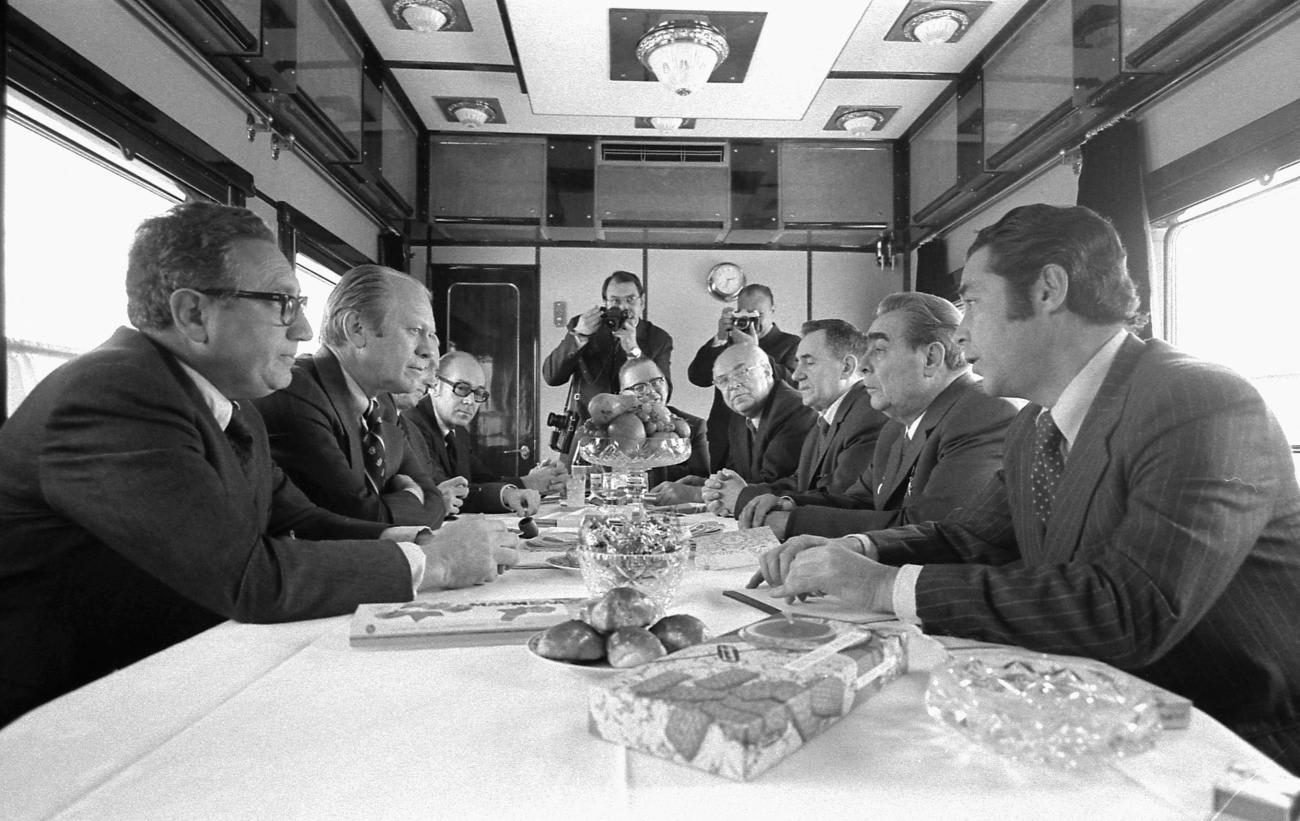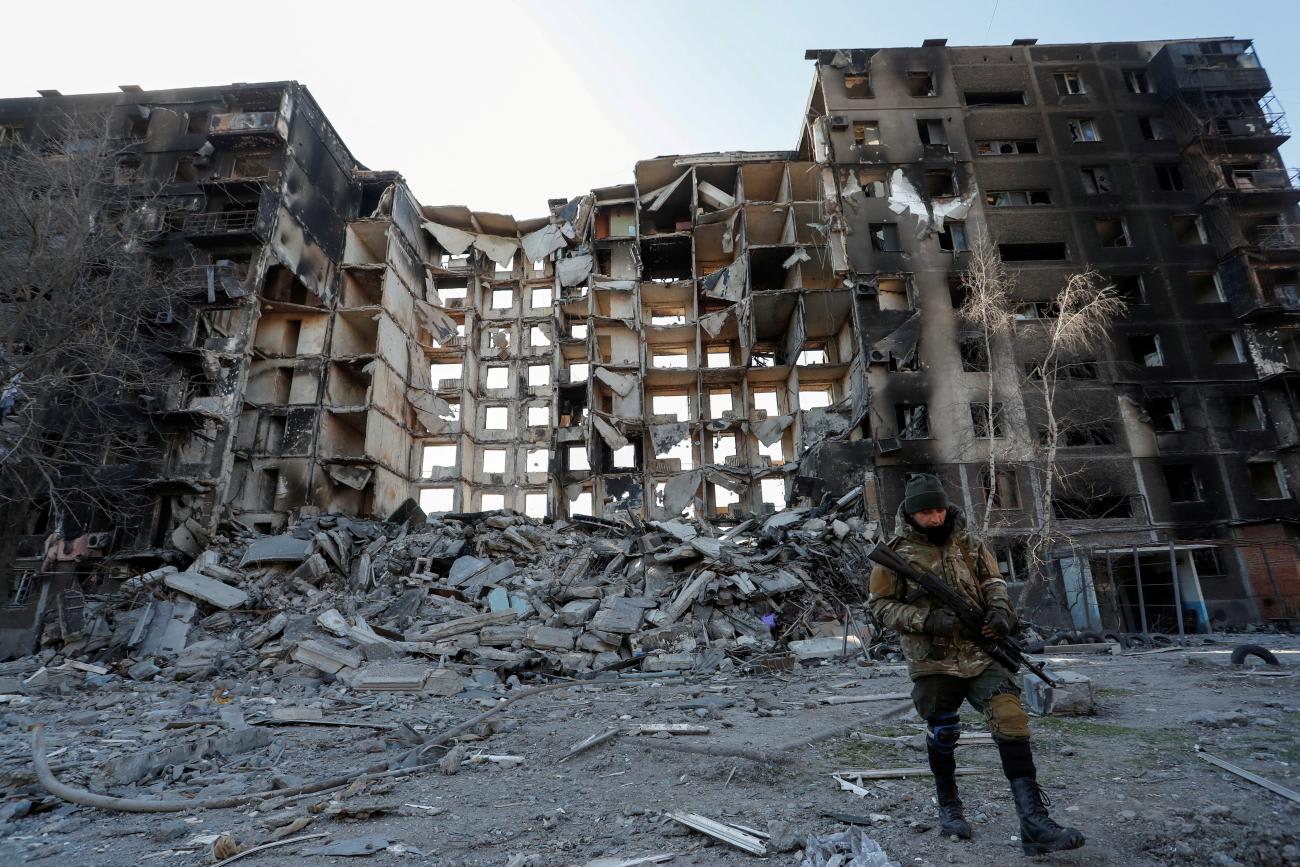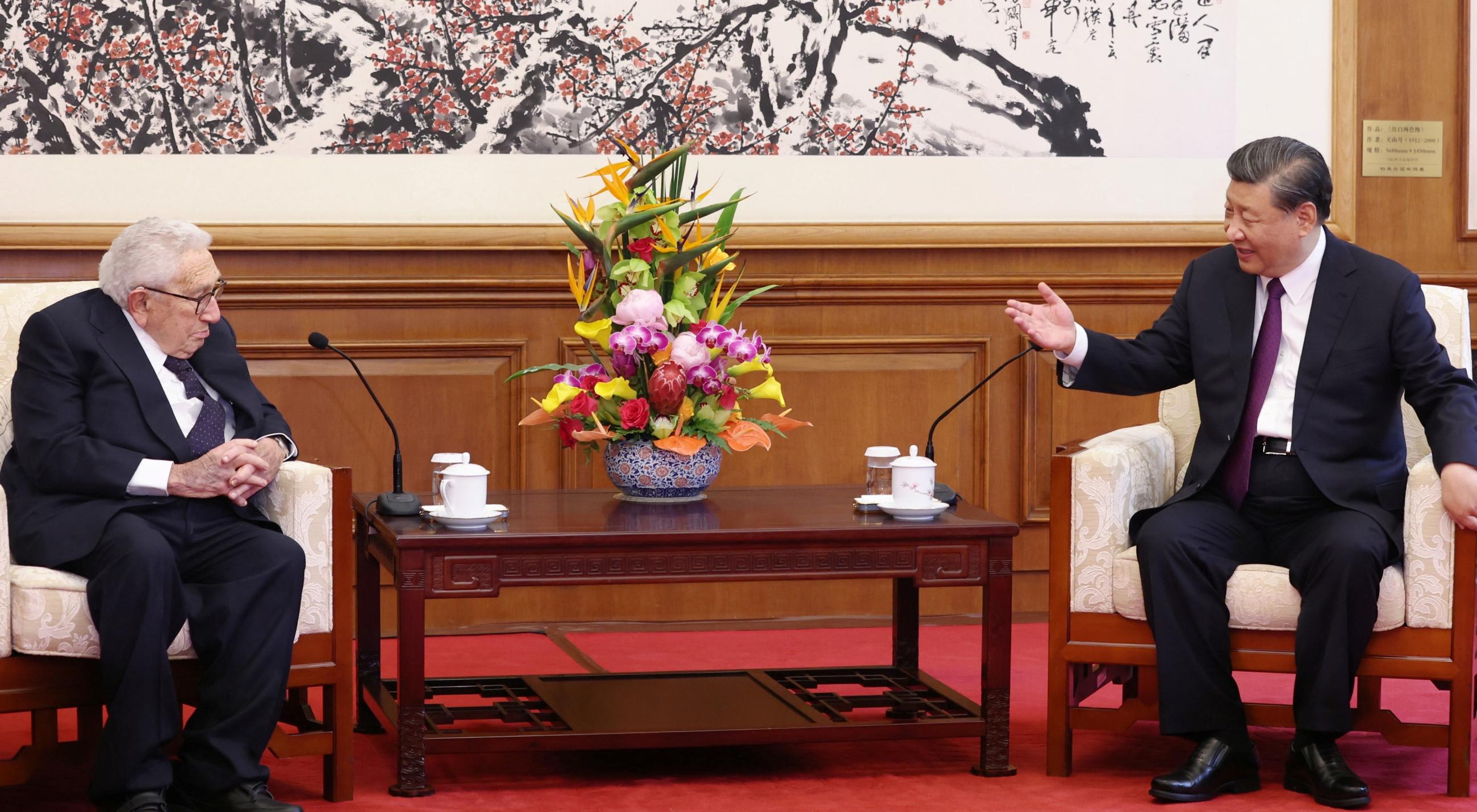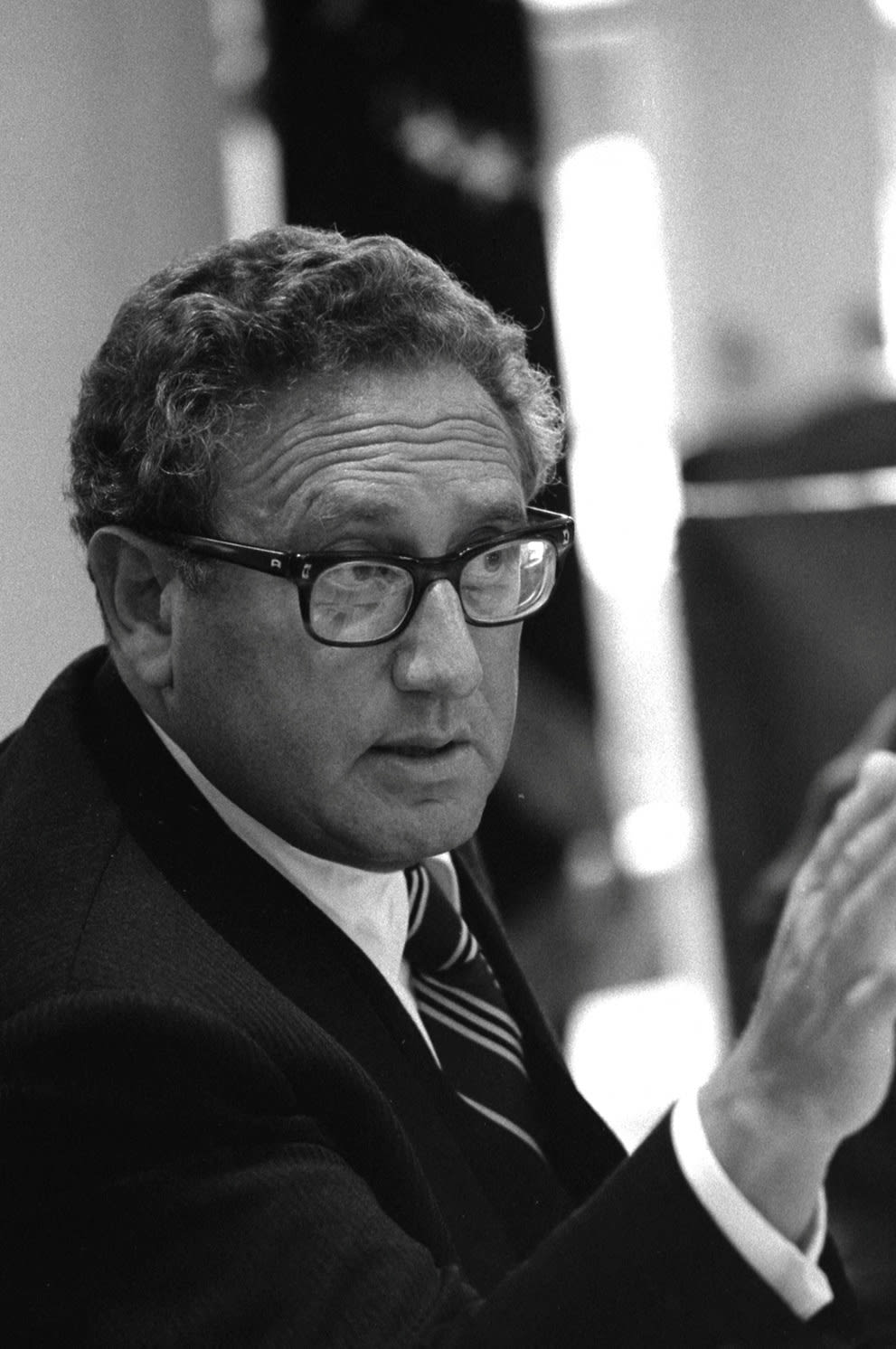Henry Kissinger's death has prompted a proliferation of commentary on the man and his legacy. He has been lionized by admirers and lacerated by critics. Other reflections have kept him more at arm's length in parsing the complexity of his life, role in historical events, and thinking about international relations. Reactions to his death revealed that Kissinger serves as a Rorschach-inkblot test for how the United States should navigate between its power and principles in the means used to achieve its foreign policy ends.
During and after his government service, many people sought Kissinger's views on diverse issues. It is, however, safe to venture that he was no oracle for global health diplomacy. Even so, Kissinger's legacy is relevant to how U.S. foreign policy on global health has evolved, especially how balance-of-power politics marginalize global health in foreign policy and why health cooperation depends on a stable world order.
It is, however, safe to venture that he was no oracle for global health diplomacy
A World Stabilized
Kissinger's reputation is deepest—and most divisive—concerning geopolitics. His academic work explored the importance of stabilizing the balance of power in historical and contemporary contexts. As National Security Advisor and Secretary of State, Kissinger worked to maintain order between the United States and the Soviet Union by establishing détente between the superpowers, opening relations with China, ending U.S. involvement in the Vietnam war, and handling crises in the Middle East in ways that increased American influence in the region. Kissinger's role in those decisions, including the costs associated with how the United States pursued its policy objectives, has fueled acrimonious debate.
In that bipolar, nuclear-armed, and conflict-prone world, international health problems did not threaten the stability of the international system. Similarly, collective action through, for example, the World Health Organization, had no relevance for managing clear and present dangers to world order and provided no geopolitical advantages in the superpower rivalry.

But a stable balance of power provided political space for health cooperation. The health diplomacy that emerged in the nineteenth century benefited from the order that the European great powers oversaw. The collapse of the balance of power in the first half of the twentieth century led to two world wars, and maintenance of such a balance during the Cold War created room for collective action that, among other things, helped developing nations address health problems. In short, the scale and impact of international health cooperation depend on stability in the international system.
A World Globalized
The end of the Cold War produced a world without balance-of-power competition. The United States was the only great power. In the unipolar system, countries exploited opportunities, such as economic globalization and spreading democracy, and focused on transnational threats, including terrorism, infectious diseases, and environmental degradation.
Those developments made Kissinger's approach to international politics—and the controversial history he made applying it—hard to connect to a world economically, ideologically, and culturally globalizing under U.S. hegemony. For example, amid the post–9/11 war on global terrorism, Kissinger backed the invasion of Iraq, which became a strategic disaster because, among other things, it aided Chinese and Russian ambitions to challenge U.S. dominance.
Geopolitical worldviews also proved unhelpful for tackling transnational threats beyond terrorism, leaving policymakers without an equivalent strategic framework for addressing such threats. Policymakers frequently argued that pandemics and climate change threatened U.S. national security, but such arguments failed to make pandemic preparedness a national priority or produce domestic political consensus about the dangers of global warming.
But a stable balance of power provided political space for health cooperation
U.S. hegemony, however, provided stability in the international system that facilitated more foreign-policy interest in, and collective action on, health than ever before. After the Cold War, the United States focused more foreign policy attention and resources on health, helping usher in an unprecedented period for global health diplomacy. The United States did not demonstrate similar leadership on climate change, but the reasons for inconsistent U.S. climate policies in a unipolar world were not geopolitical.
Here again the scale and impact of health cooperation depend on a stable world order—but, this time, that order and the actions taken against transnational threats did not reflect Kissingerian thinking.
A World Disrupted
In the 2010s, experts began to argue that geopolitics had returned and that transnational threats remained dangerous. Those arguments suggested that the United States had squandered its predominance and failed to mitigate transnational threats. For the United States, competition with China and Russia intensified as that decade progressed, making cooperation on transnational problems more difficult. In the early 2020s, China's global ambitions, the COVID-19 pandemic, the accelerating climate crisis, and Russia's invasion of Ukraine forced U.S. policymakers to confront worsening geopolitical and transnational threats simultaneously.

That challenge brought Kissinger's legacy back into play, symbolically captured in his visit to China in July 2023 that occurred as U.S. and Chinese diplomats worked to stabilize bilateral relations. As Kissinger had long argued, geopolitical stability is important in reducing the risks of war between great powers. That outcome preserves possibilities for collective action on other issues.
Opportunities to reinforce such stability, or to create geopolitical advantages, through collective action on transnational problems should be explored. But such collective action is less important than stabilizing military and economic relations. In addition, it might fail to materialize, as seen in the lack of U.S.-China health security cooperation, or struggle to produce meaningful results, as has happened with U.S.-China climate change diplomacy.
The disruptions caused by the return of balance-of-power politics mean that the scale and impact of collective action on health again depend on achieving and sustaining stability in world order. Such collective health action, however, is unlikely to have geopolitical consequences. Health diplomacy during the Cold War had no balance-of-power importance. After the Cold War, global health leadership provided no geopolitical benefits when China and Russia successfully challenged U.S. power and influence without doing anything equivalent in global health.
The Biden administration's efforts to protect and promote democracy as part of geopolitical competition do not feature global health as a priority
Such leadership also does not appear strategically important in the Joe Biden administration's thinking about great-power competition. Despite historic U.S. global health investments in developing countries, the administration's "foreign policy for a changed world" posits that the United States must develop a "better value proposition" to compete more effectively with China and Russia in the Global South. The Biden administration's efforts to protect and promote democracy as part of geopolitical competition do not feature global health as a priority.
A World to Restore
Fittingly, rumination about Kissinger's life and legacy comes at a difficult global moment. Kissinger made history amid geopolitical dangers and dark times in domestic politics. Today, U.S. diplomats confront balance-of-power threats, wars in Europe and the Middle East, transnational crises, polarized politics at home, and warnings about a possible American dictatorship.
With sources of instability now legion, global health is more dependent on geopolitical conditions and, as a result, is marginalized in foreign policy. Health diplomacy is not a potent means to achieve the end of stabilizing a turbulent world. For foreign policy on global health, there is, indeed, a world to restore, including in the sense most associated with Kissinger's legacy.













